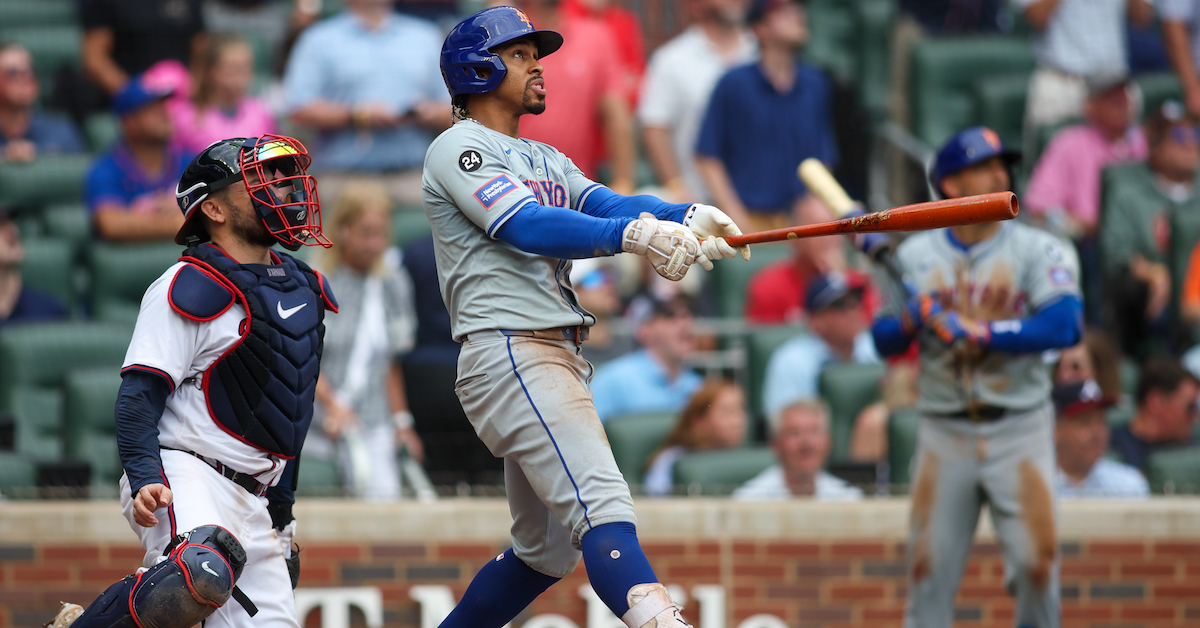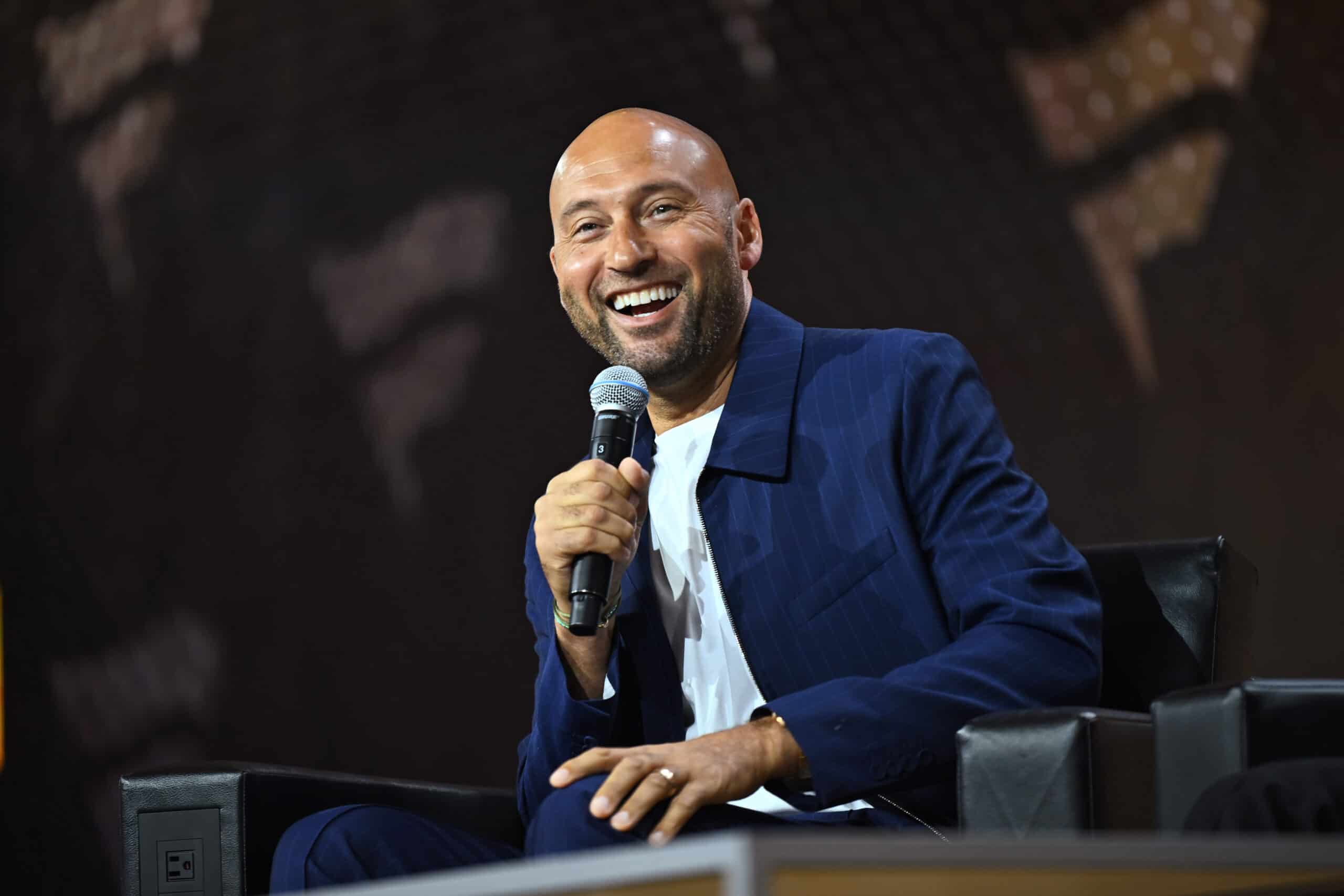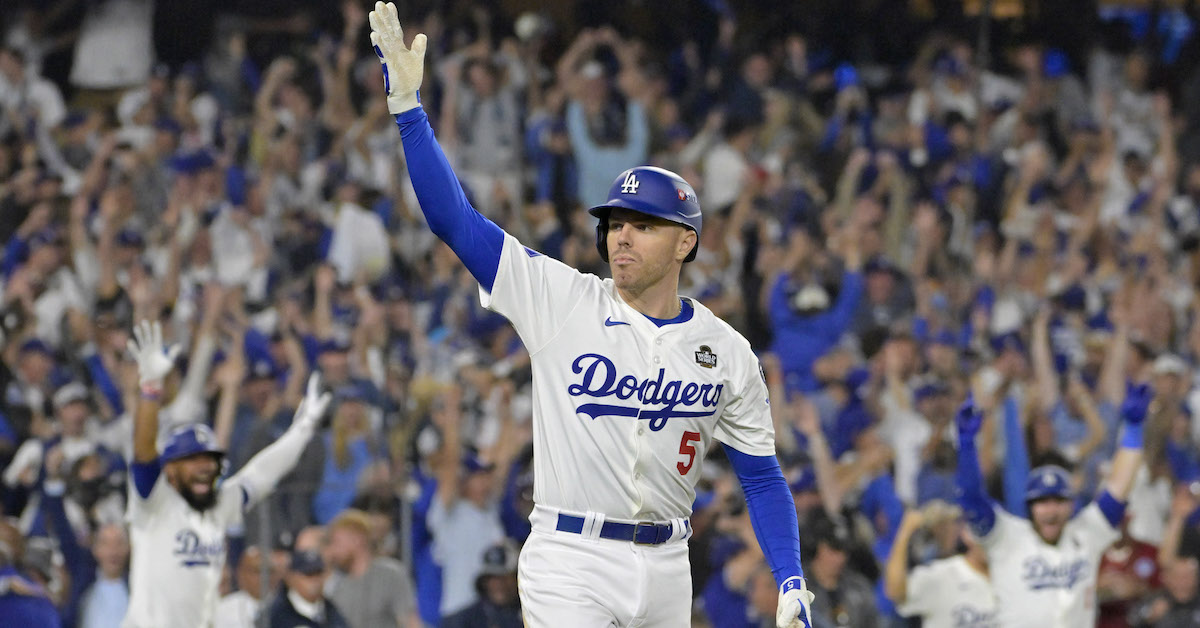[ad_1]
Welcome to a bonus edition of Five Things I Liked (And Just Liked, This Doubleheader Was Glorious So Let’s Not Be Negative)
This column usually runs on Fridays, and it’s supposed to be about a week’s worth of games played by every team in the majors. But uh, did you all see yesterday’s spectacle? The Mets and Braves played two to determine the NL playoff field, and all hell broke loose. We had wild bounces and hitters learning new skills in real time. We had lead changes and two-out rallies. We had Cy Young winners getting late scratches and relievers putting their team on their backs to protect the rest of the staff. The most dramatic day of baseball this year just happened, so let’s dive right into a rapid-fire edition of Five Things.
Tyrone Taylor’s Cueball
They say that you can throw the rules out the window when it gets down to sudden death. I’m not sure they meant the laws of physics, though. Two hundred years ago, this ball would have been accused of witchcraft:
Give Tyrone Taylor a lot of credit for sprinting out of the box on a baseball he hit pretty far foul. Give Spencer Schwellenbach credit for making this close at all. Most pitchers would have given up on that ball right away. Schwellenbach hustled over to it, grabbed it an instant after it rolled fair, and then made a nice scoop throw to Matt Olson at first, where Taylor ended up beating the throw by a slender margin:
But more than that, just look at this baseball. The Mets broadcast got an incredible slow-motion shot of it:
Taylor actually knocked the cover somewhat off, as you can see. It’s hard to imagine how else it could have spun back fair. Even knowing the ball got deformed, this was a rare occurrence. I watch a lot of baseball, and didn’t see a single one of these this year. Of course the weird stuff came out on this bonus last day of the season. It was a harbinger of things to come.
De-Switching
Ozzie Albies has been a switch-hitter his entire career. For almost the whole time, outside observers have wondered whether he should give it up. He’s a career 145 wRC+ hitter when batting right-handed against a lefty pitcher; when he’s batting left-handed against a righty pitcher, his wRC+ is only 96. That’s a huge platoon split for anyone, nevermind for a switch-hitter. But it’s difficult to learn how to face same-handed pitching while you’re also trying to produce in the big leagues, so Albies has never abandoned his lefty hitting despite the data suggesting it might be a good idea.
Or well, he’s mostly never given it up. He’s batted righty against the odd position player or knuckleballer, and when he returned from a wrist injury a week ago, he felt some discomfort swinging lefty. He’s been batting righty-only as a result.
Let’s just say that he might want to look into continuing it. First, he smashed a line drive home run:
That felt like it might hold up for a Braves win when the Mets didn’t score for the first seven innings. But after a six-run New York eighth, the Braves needed a miracle. With two outs, Albies came to the plate again, this time against righty Edwin Díaz. It turns out that Albies sees pitches from righties just fine:
Oh yeah, he walked twice too, out of character for a guy with a career 6.6% walk rate. He generally looked like a great right-handed hitter – which is exactly what he’s been his whole career. Maybe we’ll see this without an injury-related reason in the future, but it’s always nice to get confirmation for something you’ve already believed. I feel great about it — and Albies feels great too:
Reversals of Fortune
As Sarah Langs says, wheeeeeeeeee: Game 1 of the doubleheader was absolutely outrageous. The Braves were cruising, up 3-0 after seven. The Mets exploded for six runs against the teeth of the Atlanta bullpen in the eighth, spearheaded by Brandon Nimmo’s two-run homer. Then the Braves took the lead back, against New York’s best relievers, on the back of that Albies bases-clearing double. The drama wasn’t done.
The Mets escaped – but even the scoreless half-innings packed in the drama. The score went from 3-0 to 3-6 to 7-6 to 7-8 – that’s a lot of lead changes for the last two innings of a game. It’s especially a lot for the last two innings of the game, the only one being played, with a playoff spot on the line for the winner. This might have been the game of the year from a pure entertainment standpoint, and it was also the single most consequential. Not bad for some Monday afternoon entertainment.
Edwin Díaz’s (Misguided?) Heroism
Díaz entered in the eighth inning of the first game trying for a five-out save. He got the first out right away, then got a weak grounder that looked likely to end the threat. Only he forgot to cover first:
Oof, that one stings. So Díaz labored on, but he was clearly shaken by his mental misstep. He walked Michael Harris II on four straight pitches to load the bases. He fell behind Albies 3-1 and challenged him with a 97-mph fastball down the middle, only to surrender the lead on one swing.
When the Mets rallied to take the lead in the ninth, Díaz was an unlikely candidate to come back out. He was clearly gassed. But manager Carlos Mendoza sent him come back out for another inning. Díaz was laboring. He didn’t have his best stuff, and he was pitching angry after blowing the save through his own inaction in the eighth. But he slogged through another 19 high-effort pitches, focused with a runner in scoring position, and managed to close out the game and lock up a playoff berth with a well-placed fastball that induced a ground out. Díaz is surely exhausted, and he might end up more so if the Mets need him in today’s game – but his sheer determination impressed me.
Grant Holmes Saving the Day
After losing the first game of the set in dramatic fashion, Atlanta needed to win the second leg of the doubleheader to make the playoffs. The good news is the Braves had presumptive Cy Young winner Chris Sale ready to pitch the season finale. Or, well, that was the plan:
The Braves have scratched Chris Sale with back spasms. Grant Holmes will start with their season on the line.
Surely the Braves were already aware that Sale wasn’t available for this game. That would explain their aggressive bullpen usage in the first game; they wanted to do everything possible to make this start academic. But with their backs against the wall and no fully rested starter available, they had to make do with what they had. That meant swingman Grant Holmes drew the start.
[ad_2]




